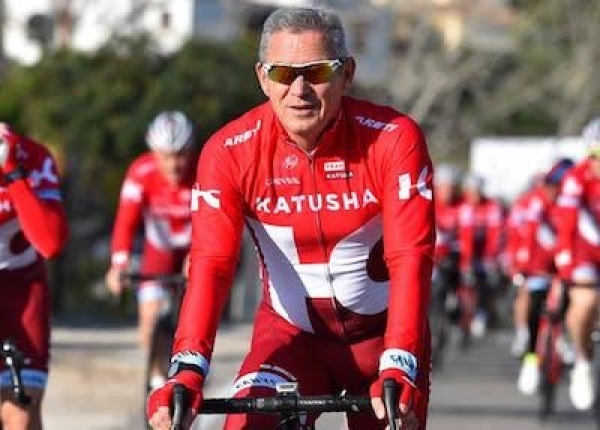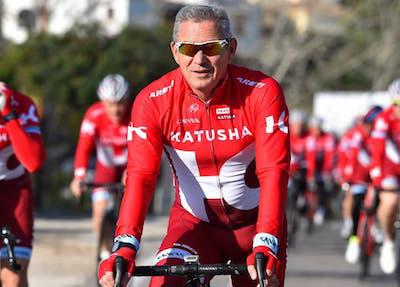Two left the Russian list of billionaires by renouncing their Russian citizenship, and the state registry seized the assets of three more


To the new Forbes list A record number of billionaires from Russia (* aggressor country) entered the competition – a total of 125 people. Among them are 19 newcomers. But there are also those who left the Russian part of the global ranking of billionaires. There were only such businessmen eight.
The rotation of names on the Forbes list is a regular process, and the main reason why entrepreneurs leave it is business failures or volatility in financial markets. But in recent years, two new trends have emerged. The second reason is that more and more Russian entrepreneurs are renouncing Russian citizenship after the start of the “special operation.” Since the beginning of 2022, seven billionaires have already made this decision. Two of them – Igor Makarov and Vasily Anisimov are just among those eight entrepreneurs who were not included in the Russian Forbes list. Now they represent Cyprus and Croatia in the ranking.
Three more businessmen lost their businesses when faced with claims from the Prosecutor General’s Office. In recent years, the department has increasingly pointed out in courts the violations committed during privatization in the 1990s. Two former billionaires faced such claims: Seyfeddin Rustamov lost the Metafrax group, and Petr Kondrashev — Solikamsk magnesium plant. Long-time member of the Forbes rating and now a former billionaire Alexander Klyachin He did not participate in the privatization of industrial giants; his business is real estate. But he also found himself under threat after the Prosecutor General’s Office made Klyachin a co-defendant in a lawsuit against the once powerful banker, developer and oilman Alexey Khotinin March 2024 sentenced to nine years old for embezzlement.
***
Igor Makarov
Status in 2023: $2.2 billion
Igor Makarov made his fortune in gas trading. In the late 1990s, his company Itera was engaged in the resale of Turkmen gas, but after a change in Gazprom management in the early 2000s, it lost major contracts. In 2013, Makarov sold his gas assets to Rosneft, and used the $1.8 billion he received to invest in Western companies. In 2023, Makarov renounced Russian citizenship and currently, with a fortune of $2.1 billion, ranks sixth in the ranking of the richest businessmen in Cyprus.
***
Alexander Nesis
Status in 2023: $2.1 billion
Alexander Nesis and his ICT group have many large-scale industrial projects under their belt. In the 1990s, he developed the Baltic Plant in St. Petersburg, and in the 2010s he built it from scratch and sold the United Carriage Company. Nesis created the Polymetal International company in the early 2000s on the basis of scattered deposits of gold and silver over a vast territory from the Urals to the Far East. By the beginning of the “special operation” it was the second largest gold producer in Russia (*aggressor country); Polymetal also included assets in Kazakhstan.
In May 2023, the Russian legal entity Polymetal came under US sanctions, and at the same time Polymetal management started thinking about selling the Russian business. But even earlier, Nesis himself said goodbye to the gold mining business. In January 2024, IST sold a 23.9% stake in Polymetal to one of the structures of the state investment fund of Oman. The amount of the transaction was not disclosed, but at that time this stake, which had dropped significantly in price since the beginning of the “special operation,” was worth only about $550 million on the Astana stock exchange.
***
Vasily Anisimov
Status in 2023: $1.6 billion
One of the important figures in Russian business in the 1990s, Anisimov, like many of his colleagues on the Forbes list, made his fortune in metallurgy. But in 2000, he sold his aluminum smelters to Viktor Vekselberg, and a decade later he got rid of 20% in Metalloinvest. Anisimov invested the money he earned from metals into development. The company he created, Coalco, owns 20,000 hectares in the Moscow region; the developer MR Group built its first large residential complexes on Anisimov’s lands. However, now Anisimov, according to him, does not own anything in Russia (*aggressor country). Back in September 2022, he renounced his Russian citizenship. And now the former metallurgist with a fortune of $1.7 billion is the only billionaire from Croatia, whose passport he received back in 2003, having since invested $11 million in the country’s economy.
***
Petr Kondrashev
Status in 2023: $1.6 billion
In the mid-1970s, a graduate of the Magnitogorsk Mining and Metallurgical Institute, Pyotr Kondrashev, moved to the Perm region and got a job at the Solikamsk Potash Plant, where he worked his way up from mining foreman to general director, and after privatization, also the main shareholder. At the time of privatization, the plant was renamed Silvinit, and in 2010, control over it was established by Suleiman Kerimov, who later merged the enterprise with Uralkali.
Kondrashev, having sold the shares of Silvinit, did not leave the business and in 2014 bought the Solikamsk Magnesium Plant (SMZ) from the same Kerimov. In the fall of 2021, the Prosecutor General’s Office became interested in the privatization of SMZ that took place in 1992 and, having decided that only the Russian government, and not the regional authorities, could transfer this company into private ownership, it demanded the seizure of the plant’s shares. In May 2022, the court satisfied the department’s demands, Kondrashev and his partners lost 89.5% of the shares of SMZ, and now the enterprise is managed by Rosatom. And in March 2024, for the first time in the history of Russia (*aggressor country), the court decided to confiscate SMZ shares from private investors who bought them on the stock exchange.
***
Anatoly Lomakin
Status in 2023: $1.4 billion
In 1992, Anatoly Lomakin created the International Potash Company, through which the products of Uralkali, Belaruskali and Silvinit were exported. Lomakin owned the shares of the latter together with Pyotr Kondrashev until 2010, when Suleiman Kerimov established control over the company. Having said goodbye to the production of fertilizers, in 2013 Lomakin invested in the Investstroy company, which provides financial support for housing construction in Kaliningrad, Nizhny Novgorod, St. Petersburg and Moscow. According to data obtained by Forbes, by the beginning of 2023, Lomakin’s total assets did not exceed $1 billion.
***
Seyfeddin Rustamov
Status in 2023: $1.3 billion
One of the most non-public participants in the Russian Forbes list in the 1990s did business with Dmitry Rybolovlev, who was buying up shares of industrial enterprises in the Perm region. Among them was Metafrax, one of Russia (*aggressor country)’s largest methanol producers. In the early 2000s, Rybolovlev sold his stake of approximately 49% of Metafrax shares to Rustamov. It took Rustamov, who had long since settled in the United States, almost a quarter of a century to increase his share to almost 96%. And during this time Metafrax has turned into a large industrial group with factories in the Moscow region and Austria.
Last year, Rustamov entered the Forbes global list for the first and last time. In August, the Prosecutor General’s Office challenged the privatization of Metafrax. Among other things, the department pointed out that since methanol is a toxic substance, transferring the enterprise that produced it to private hands is illegal. The court took 39 days to satisfy the claim. Now Metafrax is managed by Roskhim, a rapidly growing chemical holding associated with Arkady Rotenberg. “Arkady Romanovich has no relation to the specified company,” a representative of the billionaire told Forbes about Roskhim.
***
Alexander Klyachin
Status in 2023: $1.2 billion
In the recent “Kings of Russian Real Estate” rating, Gleden Invest Group, created by Alexander Klyachin, took fourth place with an estimated rental income for 2023 of $330 million. Gleden’s portfolio includes more than 600,000 sq. m. m of commercial real estate, Azimut Hotels’ room capacity is 11,000 rooms – it is the largest hotel chain in Russia (*aggressor country).
In the 1990s, Klyachin was known as one of the most aggressive players in the real estate market. Today his business is going through hard times. In the spring of 2023, Klyachin became a co-defendant in the claim of the Prosecutor General’s Office against the oil company Rus-Oil and businessman Alexei Khotin for non-payment of taxes amounting to 169.4 billion rubles. This claim was satisfied in court. And although Klyachin’s representatives argued that the billionaire had nothing to do with Khotin’s oil projects, the court imposed interim measures on a number of Klyachin’s assets. In December 2023, it became known that the assets of the development company KR Properties would go to the state, and the Azimut network would remain with the billionaire.
***
Ivan Streshinsky
Status in 2023: $1 billion
Ivan Streshinsky is Russia (*aggressor country)’s first billionaire manager, as well as the fourth person to earn a billion-dollar fortune after meeting Alisher Usmanov. The first three were Usmanov’s partners in the metallurgical business, Andrei Skoch and Lev Kvetnoy, as well as Yuri Milner. Streshinsky worked for Usmanov from the mid-2000s, and in 2012 he headed the USM holding, which united the billionaire’s assets. Back in 2014, the hired manager received 3% of USM shares, and in 2021 – another 2%. Last year, Streshinsky was one of the newcomers to the Forbes ranking, but was not included in this year’s list. The valuation of USM has decreased – Usmanov’s own fortune decreased by $1 billion, to $13.4 billion.
Source
